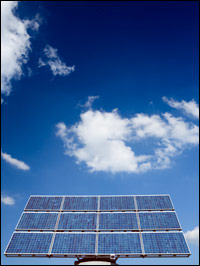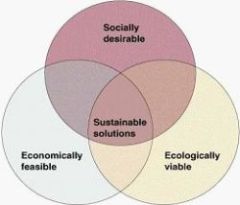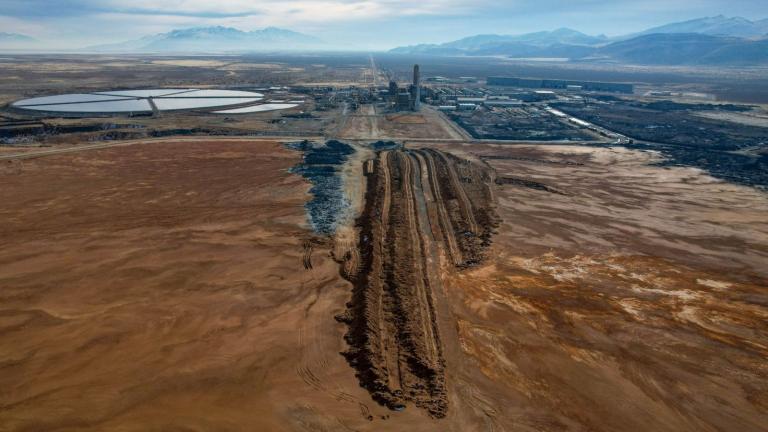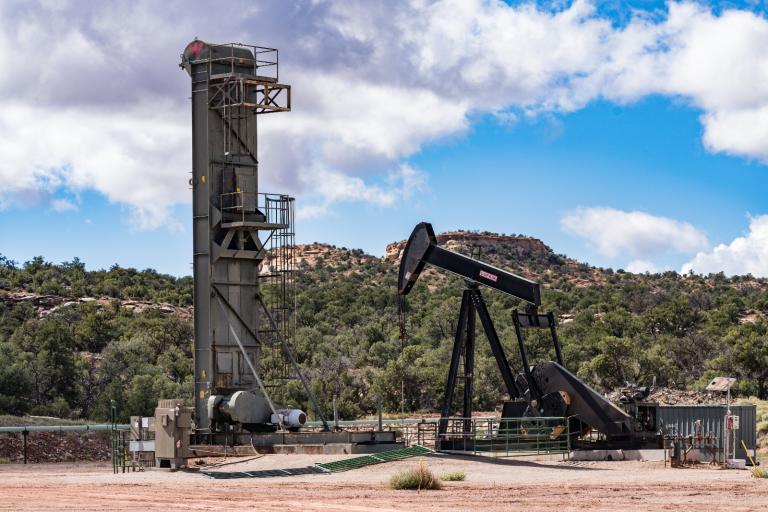Quick, name a historic moment from 1987. I’ll wait.
Well, yeeessss, that was the year that gave us timeless songs like “I Want Your Sex,” “Shake Your Love,” and with a somewhat different message, “Keep Your Hands to Yourself” (by the immortal Georgia Satellites). They just don’t write songs like those anymore. Or let’s hope not anyway.
I was thinking of something even more historic, however.
 That’s right, it’s been 20 years since the publication of Our Common Future — the influential study from the U.N. World Commission on Environment and Development.
That’s right, it’s been 20 years since the publication of Our Common Future — the influential study from the U.N. World Commission on Environment and Development.
Our Common Future argued that “… the economic, social, and ecological crises facing the planet are interlocking crises that are elements of a single crisis of the whole.” Known in eco-circles as the Brundtland report, the document also popularized the term “sustainable development” and gave us the definition of sustainability that is still the most commonly used: “development that meets the needs of the present without compromising the ability of future generations to meet their own needs.”
I’d like to use this column to meditate a bit on the possibilities and pitfalls of hitching one’s environmental star to the sustainability ideal. I promise to return to more practical green job search concerns next month.
The ideal of “sustainable development” has had a profound impact on the world of environmental careers and on me personally as my eco-career has evolved. I’m thrilled by the search for “sustainable solutions” that emerge when economics, social justice, and ecological realities back up against each other.
The late Dana Meadows once wrote that the most powerful method for changing a system was to change its goal. For me, suggesting the possibility of a “sustainable” economy has had the effect of changing the primary goal of environmentalism away from merely “protecting the environment” (often in inevitable competition with our social and economic goals), and toward the creation of a society that will somehow simultaneously provide economic and social well-being for over 6 billion human beings and guarantee healthy habitats for millions of species that share the Earth with us.

The possibility of “sustainable solutions” that result from the creative intersection of ecological, social, and economic efforts has generated a lot of experimentation throughout the economy, and I get a lot of pleasure out of tracking the careers that are emerging from the results. Transportation, agriculture, energy, forestry, architecture, construction, mining, urban planning, financial institutions, and manufacturing are just a few industries that are toying with new approaches aimed at different definitions of “sustainability.”
The transformative effects of the sustainability paradigm have been most strongly felt, however, in the traditional environmental protection, conservation, and natural-resource management professions. Environmental undergraduate and graduate programs have incorporated economic and social justice elements much more quickly and extensively than our social-science, business, and liberal-arts schools have taken on real ecological understanding. Moreover, it’s my impression that environmental professionals have genuinely taken to heart the idea that it is our responsibility to take the lead in defining what a sustainable society and economy might look like.
And there is something a bit odd about that. Before the idea of sustainability caught hold, it seemed fair — even noble — for environmental professionals to frame our work as protecting Nature against the inherent (and self-evident) destructiveness of the human economy. It was our professional understanding of the natural world, and our advocacy on its behalf, that lent moral weight and a strong sense of mission to environmental work.
When we resisted compromise in defense of Nature, we perceived ourselves (and hoped we were perceived by others) as principled heroes. The idea that we could be seen as a privileged elite who “care more about birds and bears than about people” was hard to grasp. The possibility that environmentalists would be held responsible for bringing about economic security and social justice from our professional training base aimed at protecting air, water, soil, forests, fish, and wildlife seemed counterintuitive, to say the least.
And yet, by 1987, years of environmental and conservation work had taught us that most of the exclusively “environmental” approaches were nearing the end of their maximum effectiveness and pushing the boundaries of political support. Putting environmental regulatory, technical, and managerial fingers in the dike would not ultimately hold back the rising waters of population growth, economic desires, and social injustice. The dike might eventually break and sweep away our ecological progress — and more. What we needed was an economy and social system that would somehow produce ecological health as a byproduct of its own internal rules.
The ideal of a “sustainable economy,” then, was a new statement of goals, a political strategy for winning over the wildly divergent camps of economic development champions and social justice advocates, and a practical recognition that the existing tools for improving the planet’s ecological health were ultimately no match for the forces arrayed against it.
It is also a very risky gamble. Here’s the rub: My environmentalist conception of “sustainable development” presumes that advocates for economic growth and social justice are as interested in adding meaningful ecological criteria to their vision of the good society as I am in bringing social and economic criteria into an informed vision of ecologically appropriate living. We must all be honestly engaged in the work of inventing a truly new synthesis that seeks to accommodate the economic and social justice desires of people with the habitat requirements of the widest possible spectrum of remaining viable species on the planet.
If we are all presumed to be engaged in the work of creating an economy worthy of the adjective “sustainable,” it’s not outlandish to ask if we are all willing to “care about birds and bears as well as about people.” If a question like that still strikes the ear as offensive or absurd, then perhaps we’re not working together toward a meaningfully sustainable economy. Perhaps the call for “balance” among the three circles of sustainability is, in practical terms, a call for ecological health to regularly accept third place in a contest of priorities that only has three places.
What does all of this mean for environmental workers and job seekers in 2007? Just this: As we struggle to become environmental professionals who deeply understand the legitimate human requirement for economic security and social justice, we are within our rights to require other professions to take on the quest for global ecological health and habitat protection as their own.
If we do, then the vision of a sustainable economy suggested in 1987 may actually become Our Common Future. If we don’t, we may be engaging in an unwitting act of unilateral disarmament, brilliantly disguised as an attempt at social innovation.
Have a question for Remake a Living? Send an email to ,or post a comment below.
 Kevin Doyle is the national director of program development for the The Environmental Careers Organization in Boston. He is coauthor of The ECO Guide to Careers That Make a Difference: Environmental Work for a Sustainable World and The Complete Guide to Environmental Careers in the 21st Century.
Kevin Doyle is the national director of program development for the The Environmental Careers Organization in Boston. He is coauthor of The ECO Guide to Careers That Make a Difference: Environmental Work for a Sustainable World and The Complete Guide to Environmental Careers in the 21st Century.


